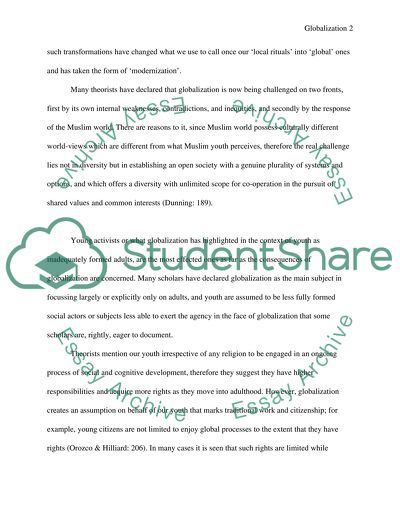Cite this document
(“The Effect of Globalization on Muslim Youth Essay”, n.d.)
The Effect of Globalization on Muslim Youth Essay. Retrieved from https://studentshare.org/miscellaneous/1525064-the-effect-of-globalization-on-muslim-youth
The Effect of Globalization on Muslim Youth Essay. Retrieved from https://studentshare.org/miscellaneous/1525064-the-effect-of-globalization-on-muslim-youth
(The Effect of Globalization on Muslim Youth Essay)
The Effect of Globalization on Muslim Youth Essay. https://studentshare.org/miscellaneous/1525064-the-effect-of-globalization-on-muslim-youth.
The Effect of Globalization on Muslim Youth Essay. https://studentshare.org/miscellaneous/1525064-the-effect-of-globalization-on-muslim-youth.
“The Effect of Globalization on Muslim Youth Essay”, n.d. https://studentshare.org/miscellaneous/1525064-the-effect-of-globalization-on-muslim-youth.


